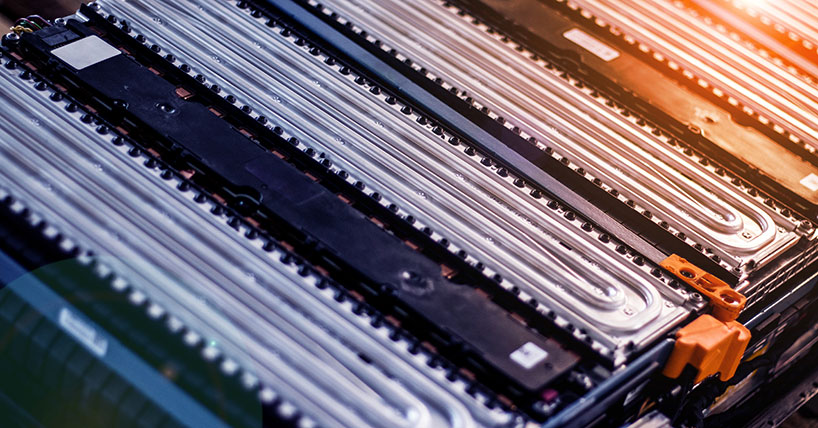Batteries
UK needs to act to prevent electric vehicle battery waste mountain
Published on: 7 November 2019
Recycling technologies for end-of-life lithium ion batteries are not keeping pace with the rapid rise of electric vehicles, according to a new study.
Switching from fossil fuels to electric vehicles is imperative if we are to meet global targets for reducing greenhouse gas emissions and improve air quality in our cities.
But a review of lithium ion battery recycling led by the University of Birmingham and involving experts from Newcastle and Leicester universities, suggests that, while electric vehicles (EVs) offer a solution for cutting pollution, governments and industry need to act now to develop a robust recycling infrastructure to meet future recycling need.
Publishing their study today in the 150th anniversary issue of Nature, the team say that unless there is significant investment in the development of efficient recycling processes, the anticipated 11 million tonnes of spent batteries are destined for landfill in just over a decade.

Urgent look at the whole lifecycle of the battery
Dr Gavin Harper, Faraday Research Fellow at the University of Birmingham and lead author on the paper, said:
“The recycling challenge is not straightforward: there is enormous variety in the chemistries, shapes and designs of lithium ion batteries used in EVs.
"Individual cells are formed into modules, which are then assembled into battery packs.
"To recycle these efficiently, they must be disassembled and the resulting waste streams separated. As well as lithium, these batteries contain a number of other valuable metals, such as cobalt, nickel and manganese, and there is the potential to improve the processes which are currently used to recover these for reuse.”
Co-author Professor Paul Christensen, of Newcastle University, who has been working with a number of UK Fire and Rescue Services on developing protocols for dealing with lithium ion battery fires, adds:
“These batteries contain huge amounts of power and at the moment we are still relatively unprepared about how we deal with them when they reach the end of their life.
“One of the areas of research for this project is to look at automation and how we can safely and efficiently dismantle spent batteries and recover the valuable materials such as lithium and cobalt.
"But there’s also a public safety issue that needs addressing as second-life EV batteries become more widely available. What we need is an urgent look at the whole lifecycle of the battery – from digging the materials out of the ground to disposing of them again at the end.”
250,000 tonnes of waste
The issue of LIB waste is already significant and is set to grow as demand for EVs increases. Based on the 1 million electric cars sold in 2017, researchers calculated that 250,000 tonnes or half a million cubic metres of unprocessed pack waste will result when these vehicles reach the end of their lives.
There is also an enormous opportunity for the UK. Analysis by the Faraday Institution – the UK’s independent institute for electrochemical energy storage research – points to the need for eight gigafactories in the UK by 2040 to service the demand for LIBs. The UK will need to develop sources of supply for the critical materials required for these batteries and recycled material could play a important role.
The study identifies a number of key challenges that engineers and policy-makers will need to address, including:
- Identifying second use applications for end of life batteries
- Developing rapid repair and recycling methods, particularly given that large-scale storage of electric batteries is potentially unsafe
- Improving diagnostics of batteries, battery packs and battery cells, so the state of health of batteries can be accurately assessed prior to repurposing
- Optimising battery designs for recycling to enable automated battery disassembly, safer than the current manual handling techniques
- Designing new stabilisation processes that enable end-of-life batteries to be opened and separated, and developing techniques or processes to ensure that components are not contaminated during recycling.
Professor Andrew Abbott, of the University of Leicester and co-author on the paper, said:
“Electrification of just 2 per cent of the current global car fleet would represent a line of cars that could stretch around the circumference of the Earth – some 140 million vehicles.
"Landfill is clearly not an option for this amount of waste. Finding ways to recycle EV batteries will not only avoid a huge burden on landfill, it will also help us secure the supply of critical materials, such as cobalt and lithium, that surely hold the key to a sustainable automotive industry.”



